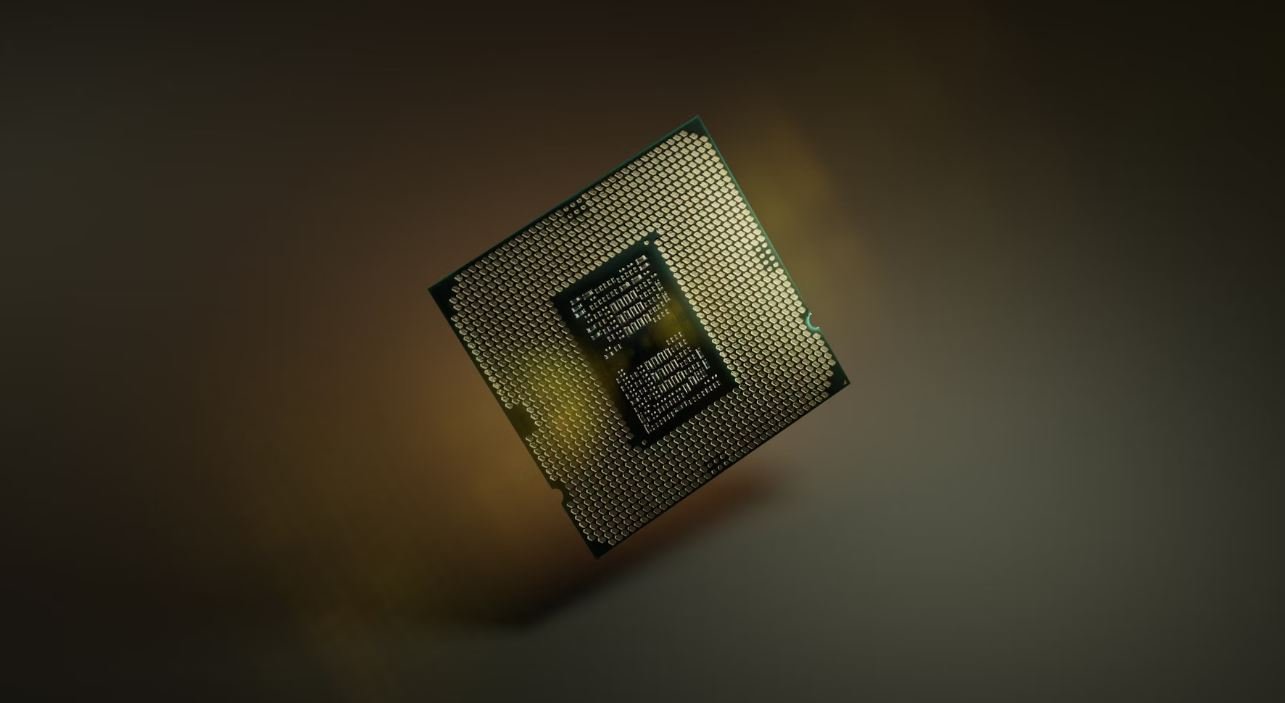Who Creates Video Games
Video games have become an integral part of our modern entertainment landscape, captivating millions of players around the world. But have you ever wondered who is behind the creation of these immersive experiences? Let’s take a closer look at the individuals and teams responsible for bringing our favorite video games to life.
Key Takeaways:
- Video games are created by diverse teams of professionals.
- Developers, designers, artists, and programmers contribute to the game development process.
- The video game industry offers various career paths for aspiring game creators.
Game Development Roles
Creating a video game is a complex endeavor that involves multiple roles collaborating throughout the development process. Some of the key game development roles include:
- Game Developers – These individuals oversee the entire game development process and ensure that all elements come together seamlessly. They are responsible for the game’s overall vision and gameplay mechanics.
- Game Designers – Game designers focus on designing the rules, challenges, and overall structure of the game. They craft the gameplay experience and ensure it is engaging and enjoyable for players.
- Artists – Artists bring the game world to life through their visual creations. They design characters, environments, and other graphical assets that contribute to the game’s aesthetics.
- Programmers – Programmers write the code that powers the game, implementing the game mechanics, AI systems, and user interfaces. They are responsible for ensuring the game runs smoothly and functions as intended.
*Each role collaborates closely with others to create a cohesive gaming experience.
Career Opportunities in the Video Game Industry
The video game industry offers a wide range of career opportunities for those interested in creating games. Whether your passion lies in programming, design, art, or writing, there is a place for you in game development. Some popular career paths within the industry include:
- Game Programmer – Responsible for coding the game and implementing various systems.
- Game Artist – Creates visually stunning 2D or 3D assets for the game.
- Game Designer – Designs the gameplay mechanics, levels, and overall game experience.
- Game Writer – Develops the game’s narrative and writes dialogue for characters.
- Game Producer – Manages the development team, budget, and project schedule.
*Find the career path that aligns with your skills and interests to make your mark in the industry.
Game Development Teams
Game development is rarely a solitary endeavor. Instead, it involves teams of professionals collaborating to bring a game to fruition. These teams can range in size from small indie studios to large development studios with hundreds of employees. A typical game development team may include:
- Producers – Oversee the entire project and ensure it stays on track.
- Designers – Create the game’s mechanics, levels, and quests.
- Artists – Develop the visual elements of the game, including characters and environments.
- Programmers – Write the code that brings the game to life.
- Testers – Identify and report any bugs or issues in the game.
| Role | Responsibilities |
|---|---|
| Producers | Oversee the project, manage resources, and ensure timely delivery of the game. |
| Designers | Create game mechanics, levels, and quests. Collaborate with other team members on the game’s vision. |
| Artists | Design characters, environments, and other visual elements of the game. Ensure the game has a distinct visual style. |
| Role | Responsibilities |
|---|---|
| Programmers | Write the code that powers the game. Implement game mechanics, AI systems, and user interfaces. |
| Testers | Identify and report bugs, glitches, and other issues during the game’s development. Ensure the game is of high quality. |
| Role | Responsibilities |
|---|---|
| Artists | Create visually stunning 2D or 3D assets that contribute to the game’s aesthetics. |
| Sound Designers | Create sound effects and music to enhance the game’s atmosphere and immersion. |
Innovation and Collaboration
Video game development is driven by constant innovation and collaboration. Teams work together to push the boundaries of what’s possible in gaming, creating unique and engaging experiences for players worldwide. With new technologies and platforms emerging, the future of game development looks promising.
*This collaborative spirit has contributed to the growth and evolution of the gaming industry.
Join the Game Creation Journey
If you have a passion for video games and a desire to be part of the creative process, consider exploring a career in game development. There are numerous educational resources, courses, and communities available to support your journey into the world of game creation. Embrace your creativity and make your mark in this exciting industry!

Common Misconceptions
1. The belief that video games are created by a single person:
Contrary to popular belief, video games are not typically created by a single person working in isolation. In reality, video game development is a complex collaborative process that involves a team of skilled professionals. This misconception can undermine the effort and expertise required to create high-quality video games.
- Video game development involves a team of designers, programmers, artists, and sound engineers.
- Each member of the team contributes their particular expertise to different aspects of the game.
- Collaboration and effective communication between team members are essential for successful game development.
2. The assumption that video game creators are all programmers:
Another common misconception is that video game creators are solely programmers who write lines of code. While programming is an important aspect of game development, there are many other roles involved in bringing a video game to life. These roles encompass game design, art creation, sound engineering, and more.
- Game designers are responsible for creating the overall concept and mechanics of the game.
- Artists design and create the visual elements of the game, such as characters, environments, and effects.
- Sound engineers compose and implement music, sound effects, and voice acting.
3. The misconception that creating video games is a quick and easy process:
Contrary to popular belief, creating a video game is far from being a simple or quick endeavor. It requires extensive planning, design, development, and testing phases that can span several months or even years. This misconception undermines the dedication and hard work required to bring a video game to market.
- Game development involves numerous iterations, testing, and refining to ensure a polished final product.
- The process includes bug fixing, balancing gameplay elements, and overall optimization.
- Additionally, frequent updates and maintenance are often required after the game’s release.
4. The belief that video game creators only cater to a single audience:
Some people mistakenly assume that video game creators target only one specific audience, typically young males. However, the gaming industry is incredibly diverse and caters to individuals of all ages, genders, and backgrounds. Games are developed to appeal to a wide range of players, encompassing various genres, themes, and gameplay styles.
- There are video games designed specifically for children, young adults, and mature audiences.
- Gaming companies strive to create inclusive and diverse experiences for players.
- The industry acknowledges the importance of accessibility and creating games for people with different abilities.
5. The misconception that video game creators always prioritize graphics over gameplay:
Some people falsely believe that video game creators focus exclusively on creating visually stunning games at the expense of strong gameplay mechanics. While visuals are undoubtedly crucial for many games, gameplay remains a vital aspect of video game development. Striking a balance between engaging gameplay and impressive graphics is a challenge that game creators continually grapple with.
- Gameplay mechanics, controls, and level design are carefully designed to create an enjoyable gaming experience.
- Developers prioritize fluid movement, responsive controls, and challenging but rewarding gameplay.
- Graphics are chosen to enhance the overall experience and complement the gameplay, not overshadow it.

The Rise of Indie Game Developers
Indie game developers have been making a significant impact on the video game industry in recent years. This table highlights some of the most successful indie games and the revenue they have generated.
| Indie Game | Release Year | Revenue (in millions) |
|---|---|---|
| Minecraft | 2011 | 2.5 |
| Undertale | 2015 | 3.5 |
| Stardew Valley | 2016 | 12 |
| Cuphead | 2017 | 20 |
Gender Diversity in Game Development Teams
Gender representation in the game development industry has long been a topic of discussion. This table showcases the percentage of women working in different roles within game development teams.
| Role | Percentage of Women |
|---|---|
| Programmers | 17% |
| Artists | 28% |
| Designers | 18% |
| Producers | 24% |
Top-selling Video Game Consoles of All Time
The introduction of new video game consoles has always been met with excitement. This table presents the best-selling consoles in terms of total units sold.
| Console | Total Units Sold (in millions) |
|---|---|
| PlayStation 2 | 155 |
| Nintendo DS | 154 |
| Game Boy | 118 |
| PlayStation 4 | 115 |
Video Game Genres Based on Popularity
Video games cover a broad range of genres to cater to diverse player preferences. This table highlights the most popular genres based on sales and player engagement.
| Genre | Percentage of Sales |
|---|---|
| Action | 28% |
| Adventure | 15% |
| Sports | 12% |
| Role-playing | 20% |
Mobile Gaming Revenue
With the rise of smartphones, mobile gaming has become a massive industry. This table displays the revenue generated by mobile games in recent years.
| Year | Mobile Gaming Revenue (in billions) |
|---|---|
| 2018 | 63.2 |
| 2019 | 68.5 |
| 2020 | 77.2 |
| 2021 | 88.0 |
The Impact of Video Games on Mental Health
The influence of video games on mental health is a matter of ongoing research. This table presents the findings of a study on the relationship between gaming and mental well-being.
| Gaming Hours per Week | Self-reported Well-being (Scale of 1-10) |
|---|---|
| 0-5 | 7.2 |
| 6-10 | 7.6 |
| 11-20 | 7.4 |
| 21+ | 6.8 |
Video Game Streaming Platforms
In recent years, video game streaming has gained immense popularity as gamers share their experiences online. This table highlights the most prominent video game streaming platforms and their user bases.
| Platform | Monthly Active Users (in millions) |
|---|---|
| Twitch | 140 |
| YouTube Gaming | 110 |
| Facebook Gaming | 80 |
| Mixer | 30 |
Video Game Monetization Models
Game developers employ various monetization models in order to generate revenue. This table highlights the most common methods used in the industry.
| Monetization Method |
|---|
| Pay-to-play |
| Free-to-play with in-app purchases |
| Subscription-based |
| Ad-supported |
Virtual Reality (VR) Gaming Market
The emergence of virtual reality has opened new possibilities in gaming. This table showcases the revenue generated by the virtual reality gaming market.
| Year | VR Gaming Revenue (in billions) |
|---|---|
| 2018 | 2.3 |
| 2019 | 4.1 |
| 2020 | 6.1 |
| 2021 | 8.8 |
Video games have transformed from a niche hobby to a global form of entertainment enjoyed by millions of people worldwide. From indie developers carving their own path to the dominance of certain genres and platforms, the industry continues to evolve and captivate players. Additionally, the increasing focus on mental well-being and the innovative technology of virtual reality highlight the far-reaching impact of video games. With each passing year, the industry sets new records and breaks boundaries, demonstrating its enduring appeal and potential for future growth.
Frequently Asked Questions
Q: What is the role of a game designer?
A: Game designers are responsible for creating the overall concept and vision of a video game. They design the gameplay mechanics, develop the rules and objectives, and create the levels, characters, and storylines.
Q: What skills are required to become a video game artist?
A: Video game artists need strong artistic and design skills, including proficiency in drawing, painting, and using digital art tools. They should also have knowledge of 3D modeling and animation software, and a good understanding of game development processes.
Q: How long does it take to develop a video game?
A: The development time for a video game can vary greatly depending on its complexity, scope, and the size of the development team. Small indie games may take a few months to develop, while larger AAA titles can take several years.
Q: What role does a video game programmer play?
A: Video game programmers are responsible for writing the code that brings a game to life. They develop the game mechanics, implement the AI, design the user interface, and ensure smooth gameplay performance.
Q: How much money do video game developers make?
A: Salaries for video game developers can vary widely depending on factors such as experience, location, and the size of the company. Junior developers may earn around $50,000 per year, while senior developers and managers can earn six-figure salaries.
Q: What is the process of video game testing?
A: Video game testing involves playing games to identify and report bugs, glitches, and other issues. Testers also ensure that the game meets the desired quality standards and provides a smooth and enjoyable experience for players.
Q: What are the different types of game development tools?
A: Game development tools encompass a range of software used by developers. This includes game engines (e.g., Unity, Unreal Engine), design tools (e.g., Photoshop, Blender), and programming languages (e.g., C++, C#, JavaScript).
Q: Is a degree in game development necessary to get into the industry?
A: While a formal education in game development can provide a solid foundation, it is not always a requirement. Many successful game developers have entered the industry through self-teaching and gaining practical experience.
Q: Can one person create a video game on their own?
A: Yes, it is possible for an individual to create a video game, especially with the availability of game development tools and resources. However, developing a complex game entirely on your own can be challenging and time-consuming.
Q: How can I get started in video game development?
A: To get started in video game development, you can begin by learning programming languages, experimenting with game development tools, and creating simple games as practice. Additionally, studying game design principles and joining online communities can help you connect with other developers and gain valuable insights.




